A few years ago, I was introduced to Saskia De Borchgrave, now Saskia D’Altena, one-third of a creative collective Holyrad alongside Daryl Oh and Elena Franco. She is a UK-born producer based in New York City. She moved to New York eight years ago to study. With a rich history and mixed heritage, Saskia explains her intriguing roots. “I have dual citizenship from my mum’s side – her father was Belgian and moved to the US to become a journalist in the 1940s, and her mum immigrated to the US with her family from Hungary in the 1920s. I’m very lucky to create roots in both places and to have easy access to opportunities in both as well.” “I want to start this interview by saying that I am speaking from the perspective of an independent producer, completely in support of the SAG-AFTRA and Writers Guild strikes. I hope that sharing my experiences on the ground encourages anyone above the line in this industry to work towards more equitable practices.” She says.
Saskia spends at least a week in London a year, this is evident in her now-changing accent, which is often mistaken for Australian. She quickly adapts to her native accent as soon as she is with other Brits, something she is grateful for. “I have so much respect for the work coming out of there. To me, it’s top. I do look at it very longingly, but it’s hard to imagine myself producing there. When you’ve established yourself as a producer in a specific country and built a very loyal creative community, you become afraid of how alien production would feel if you tried to relocate. Especially in one of the most competitive cities for your industry.”
Growing up, Saskia wanted to become a psychologist until she was in therapy at 14 years old and soon realised that it wasn’t going to work for her. There was a time when she also wanted to be a professional tennis player, a sport she has recently revisited when she’s not working. She was very passionate about portrait photography starting around the age of 15 and tried to convince her mom to let her study photography at New York University which she advised against.
“When I told her I wanted to do photography at NYU, she said a photography degree was not worth that amount of money, and that I must choose something more serious. So, I said ok I’ll study film.”

Her thesis project looked at isolation in women – Edward Hopper and Gregory Crewdson were her biggest inspirations. These artists introduced her to the work of her now favourite cinematographer, Lucasz Zal, and what her ideal film would look like, if she directed one. She believes that beautiful photographic compositions are what essentially make up a film. She recalls a time in her student career when her approach would not resonate with her very traditional art teachers who hated film as a medium. They went as far as calling her mother in to tell her that her work wasn’t going to cut it into NYU’s film program and that she should look at other study options. It was after that disheartening time in her life and a mental breakdown or two that she found a British Film Institute program, she applied and six weeks and ten pounds later her love for film was reignited by the intensive course in filmmaking. The film she made during the course was voted the best film at their awards event and that played a huge part in getting her into NYU.
“The irony is that at NYU I never took a producing class. It never even crossed my mind to go into producing. I was mostly in writing and directing and I did well. My film in my 2nd year got into the NYU showcase, but I never shared it on platforms because it was a very personal story. I think I lacked a lot of guts when it came to writing and directing – teachers would tell me to show a script to people they knew in the industry or submit my film to festivals, and I was always too afraid. I think I eventually fell into producing after leaving school because I felt a lot more comfortable fighting for other people’s ideas rather than my own.”
Leaving NYU & Life at Holyrad
Holyrad was an escape from NYU for Saskia, a space where she felt comfortable making mistakes and getting more familiar with using equipment she wasn’t familiar with then. This is where she would spend hours, daily in the studio shooting BTS, observing and assisting a lot of the back end of running a business and shoots. “I guess I worked hard from the get-go because one day the Founder, Daryl Oh, was like do you want equity in this business? I was 20 at this point. It was truly my education in work ethic and it forever shaped me. We were so for the people, we made very little money. We couldn’t afford employees and did everything ourselves. And I think this strange balance of being an owner that attended meetings in a formal blazer, but also being the person on their hands and knees cleaning the studio’s toilet at 2 AM, is a significant reflection of why people like me as a producer. I don’t have a big ego, so you’ll never hear me say “Not my problem” or “Not my department”. When everyone’s working towards a common goal, I’ll take on any task necessary to achieve it.”
“What’s strange is that Holyrad now feels like a gap in my personal life that lasted 4 years. It was my fuck you to college – a response to my decision to drop out of NYU and not go into filmmaking. For four years I didn’t watch films, I didn’t write, I didn’t listen to new music, I didn’t go to exhibitions, and ironically I probably stunted my own growth creatively. Holyrad was the four years I spent investing in others, and it’s what made me a great producer, and honestly a producer with a lot of purpose. Because we had such an incredible, diverse and talented community, producing was how I contributed – pushing for the people who didn’t just have it handed to them, or bros to guarantee them a place on set. That ethos stays with you however much you grow.”

“The biggest challenge in the transition was having to very quickly adjust to a jump between what I considered high-budget shoots, versus the industry standard. I’d been a very scrappy producer, barely even charging for my own time, never thinking about costs outside of the shoot day itself because I would take on all that PA work in pre-pro as well. So suddenly you go from 50K being a big budget, to 500K being a low budget. You can’t imagine what is being spent on, but then you start to really appreciate that there is a cost assigned to everything, that there’s a union, that people get a day rate for every day that they work. I think I would’ve burnt out way sooner had I continued the way I was doing it. I still pride myself in being able to work [on] very small budgets (for the right projects), and I think that is so important. Commercial producing really starts to warp your perception of money, and how much you need for what. You can easily lose your ability to think creatively, and honestly, to me, that’s what a “big-time producer” is haha. A producer who’s gotten so high level, they don’t work on the projects that deserve love but don’t have money, that require some personal elbow grease. I mean, they don’t really work full stop. I’m proud to be a producer that stays close to the ground – I’ll take on the role of five PAs combined if it gets the job done.” Some of her recent work includes producing the social media and PR units for the Mcdonald’s commercial for the Super Bowl 2023. She had been bidding on the project for weeks not knowing who the celebrities were, who turned out to be Cardi B and her husband, rapper Offset.
Agency – Golin
Prod Co – Easy Mondays
Director – LOBOS
She worked with a directing duo LOBOs with whom she has a longstanding relationship. “I have known them for a while, they’re the best to work with for high-profile talent. You tell them they have 45 minutes with the talent and they get you more with 45 minutes than most directors can with 5 hours. And it looks amazing. I think what one has to remember about winning jobs like that is that an agency trusts you to handle that level of talent, and that’s, at least for me, a very big part of why I feel proud at the end.” Saskia, with LOBOs, just wrapped up a shoot for Puma’s 50th anniversary of Hip Hop with some big names. She is thrilled by the work she gets to produce but loathes how generic commercials have become and how they stifle one’s creativity. She is working on something she truly cares about and didn’t mind doing it for less money, as it posed a challenge. She also gleefully mentions another fave of hers Franklin Ricart who is one of America’s most loved cinematographers. Franklin has shot videos for the likes of Doja Cat, Gunna, A$AP Rocky and many more. She stands in awe of her team on how they collectively produced and directed a stellar production on a low budget.
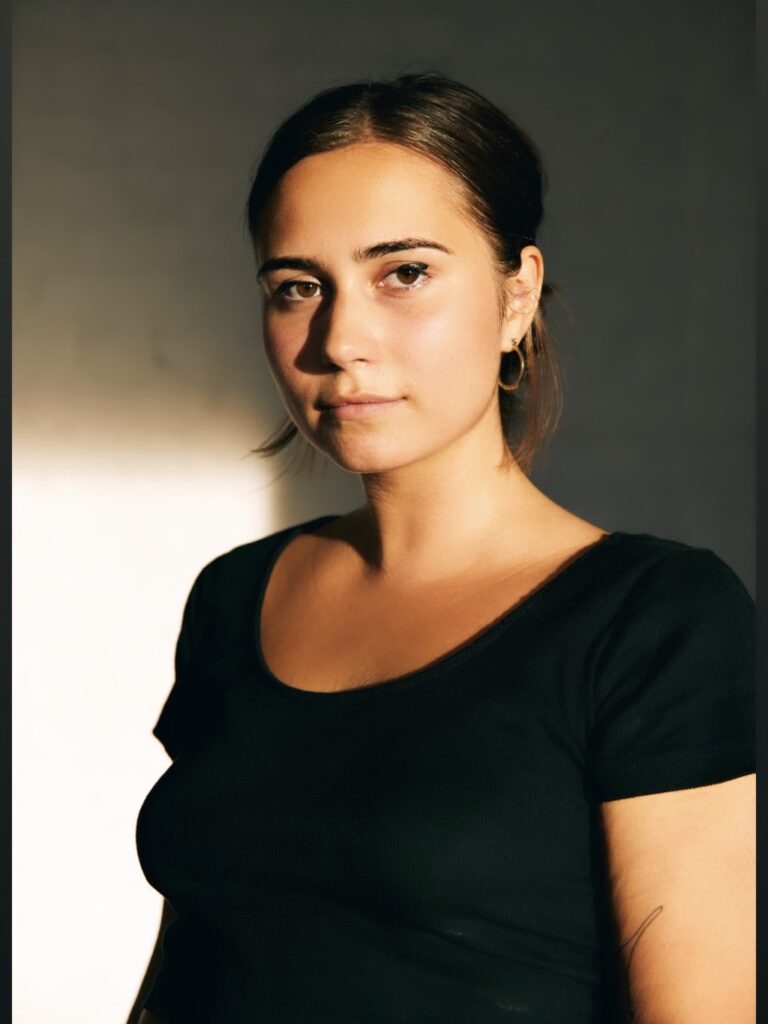
Career highlights
We ask her about some of her career highlights and she is quick to say that the most special part of producing is finding one’s creative partners to grow with. “You become each other’s go-to team, and it helps your career advance very quickly because you’re so committed to each other. I was very lucky to find LOBOS, and we sort of made an unspoken pact that we’d really push each other. It started in 2021, pre-Easy Mondays when I hired them to do some lookbook socials stuff, and then they brought me on to produce some stuff for Grailed, Carmelo Varela (one half of the duo) put me as his producer for an Arizona Coyotes campaign, I brought them on to shoot and direct the Timberland commercial with Jadakiss, and that led to Andrew Gardia (other half of the duo) trusting me to produce his short film, Tumba del Mar. Tumba was the biggest project I’ve produced since moving to New York, not because of its budget size, but because of the trust I was given and the amount of responsibility I held. The story is about a Cuban woman who immigrated to Miami during the 90s Cuban rafters crisis and is now processing the death of Fidel Castro in November 2016, amidst mass celebrations in Miami. Making this film out in Miami was such a beautiful experience because – contrary to most commercials – people are on your set because they care and see the importance of your film, not because they’re making a day rate. Your crew works twice as hard for a quarter of the paycheck, and that love for the story really shows in the final product. And it paid off! Our film has since screened at Miami Film Festival, Florida Film Festival, Manhattan Film Festival and is now going to HollyShorts in LA this summer.
But the most recent and possibly significant highlight would be that I joined the amazing production company, Easy Mondays, as Head of Production in October 2022. Carmelo had been working with the Executive Producer & Founder, Asori Soto, and recommended me for the position. Asori has become the first mentor I’ve had since moving here eight years ago, and definitely gave me the job because he saw my potential, and was willing to make a long-term commitment to help me grow into the role. I’ve travelled to places I’d never been, like Mexico and Argentina, for shoots, and I work with an incredible roster of directors. Producing can be such a thankless job, so finding your community of people that really appreciate you and see you is what makes it worth it.”

Health scares
Young and with the brightest future in the industry, Saskia also battles with some health challenges. She has been living with severe chronic pain from a rare autoimmune disease that started about 14 years ago. She is always in pain, every day. “Sometimes it’s subtle enough that I can ignore it, sometimes it’s at such a severe level that trying to focus with this stabbing pain in my neck/chest/shoulder/back, I find it very hard not to snap on the job” On top of this disease, she also deals with sciatica that flares up a couple of times a year, dependent on how much stress she is under. “After the Timberland production, I did with Jadakiss, it was such an intensely stressful shoot to produce that my sciatica got so irritated I couldn’t walk for six weeks. What fuels chronic pain most of the time is stress. On-the-ground producing is probably the most stressful job in production, a challenge for me is that I work a job that is making my chronic pain worse, and I sometimes get very existential about how long I’m going to last in this field. At some point, my health will have to take priority.”
Chronic pain aside, a big challenge for producers, and so many other people in the industry is the “fake it til you make it mindset”. She has often been thrown into positions and productions she did not have the experience for, but held her cool on every call, did the necessary research privately, asked questions to people in the industry that she trusted, and made things happen. What about the challenges of being a woman in production? Saskia is passionate about social change and women being afforded opportunities. “I can’t answer this question without bringing up the challenges of being a woman in the industry. How this relates to producing now feels very different to how it relates to directing or DPing or going into G&E. There are tons of female producers (again, speaking outside of the high-level Hollywood world here), and the majority of the producers are women but then you look at the rest of the faces on the screen, the people we’re here for, the “great minds” of the call, and they’re majority men. And they say things like “Hmm.. I’ve just had an idea.. And maybe it’s asking for the impossible, but I’ll let [insert female producer’s name] figure that one out” and then they just say whatever they want, with the burden of all the logistics falling on you. And they love that power trip. And suddenly you feel more like a personal secretary, rather than a driving force on the team.
There is also a stereotype that the best producers are basically just good mums, I’ve even had a DP say to me “So you’re gonna be mom for the week?” when we were travelling out for a shoot that I’d been producing solo for 4 months. You start to become very self-conscious as to how you’re perceived, and even start to feel the lack of respect from the guys doing the physical labour on set, because they just see you as the person who sends emails, rather than a person with creative talent. And yet a lot of producing is creative. Dissecting a script and working out how the fuck we’re going to pull this off, who are the best fit to direct it, to shoot it, to art it, all of this is happening at the producer level, and we have to make creative calls based on budget/logistics/needs before the director plays a heavy hand in the project.”

Self-reflections:
I think one of the hardest things I’ve had to grapple with and work on in (on and off) therapy, is that the job I have is a complete reflection of the person I am. In the best and in the worst ways.
Producing really does allow you to deflect – to think about everyone and anyone but yourself, to be distracted with work 24/7, and honestly to have a constant justification for your stress, anxiety and even (short-term) unhappiness. I don’t like looking at myself, I don’t like thinking about myself, and I don’t like having to put my personal self and ideas in the spotlight. I ask a lot of questions and I keep the conversation on you. I’m a people pleaser. That type of personality gets you very far as a producer.
Now, on the other hand, in the best ways, producing reminds you that you’re a natural leader. That you’re very likeable and personable. My friends always take the piss out of my “producer voice”, because I become all bubbly and friendly and “positive”, when really if you know me, I’m not far from the opposite haha. But yeah I mean if an agency or a director is requesting you personally to produce, it’s a huge compliment. They’re telling you they trust you with such a wide range of responsibilities, with their own stakes. They know they can rely on you because you make shit happen. That’s a personal quality. Like most creatives whose jobs are not traditional and “clear-cut”, Saskia often finds herself explaining what exactly she does. Once her proud mother shared her work on Facebook as the “director” of the project, in her correcting her, she had to explain what the role of the producer is and if often is about “the tedious tasks that got everyone to the shoot day. You manage, by either taking on or delegating to the right person, every single task that comes through the door until you see the result with your own eyes in front of you.” She encourages aspiring producers to have a passion for production than just wanting to work with the stars and directors. One must be extremely passionate and know they will live and breathe the production until it wraps. It is not as glamorous.

Check out some of Saskia’s work here:
Timberland x Billionaire Boys Club with Jadakiss and Aurora Anthony
Prod Co Game Seven
Director Andrew Garcia
DP Carmelo Varela
Heinz (won a Bronze Cannes Lion Award this year)
Agency Mischief
Prod Co Easy Mondays
Director Maca Rubio
DP Cesar Guardia
Tumba del Mar
Director Andrew Garcia
DP Sachi Bahra
Taylor Fritz for Waterdrop
Director Valentin Zwupp
DP Patrick Pichler
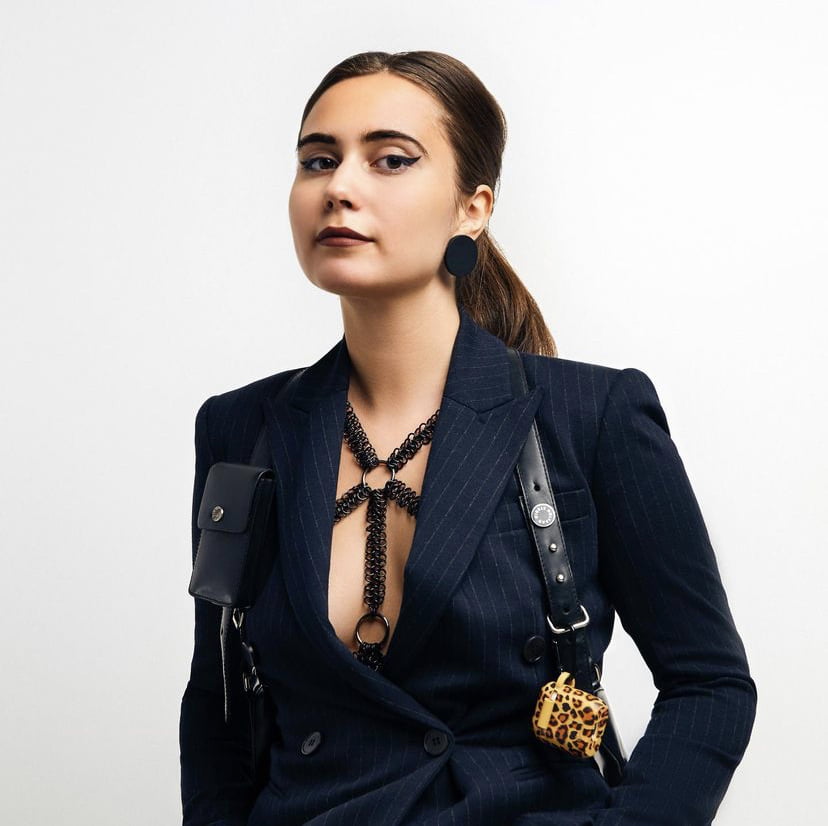

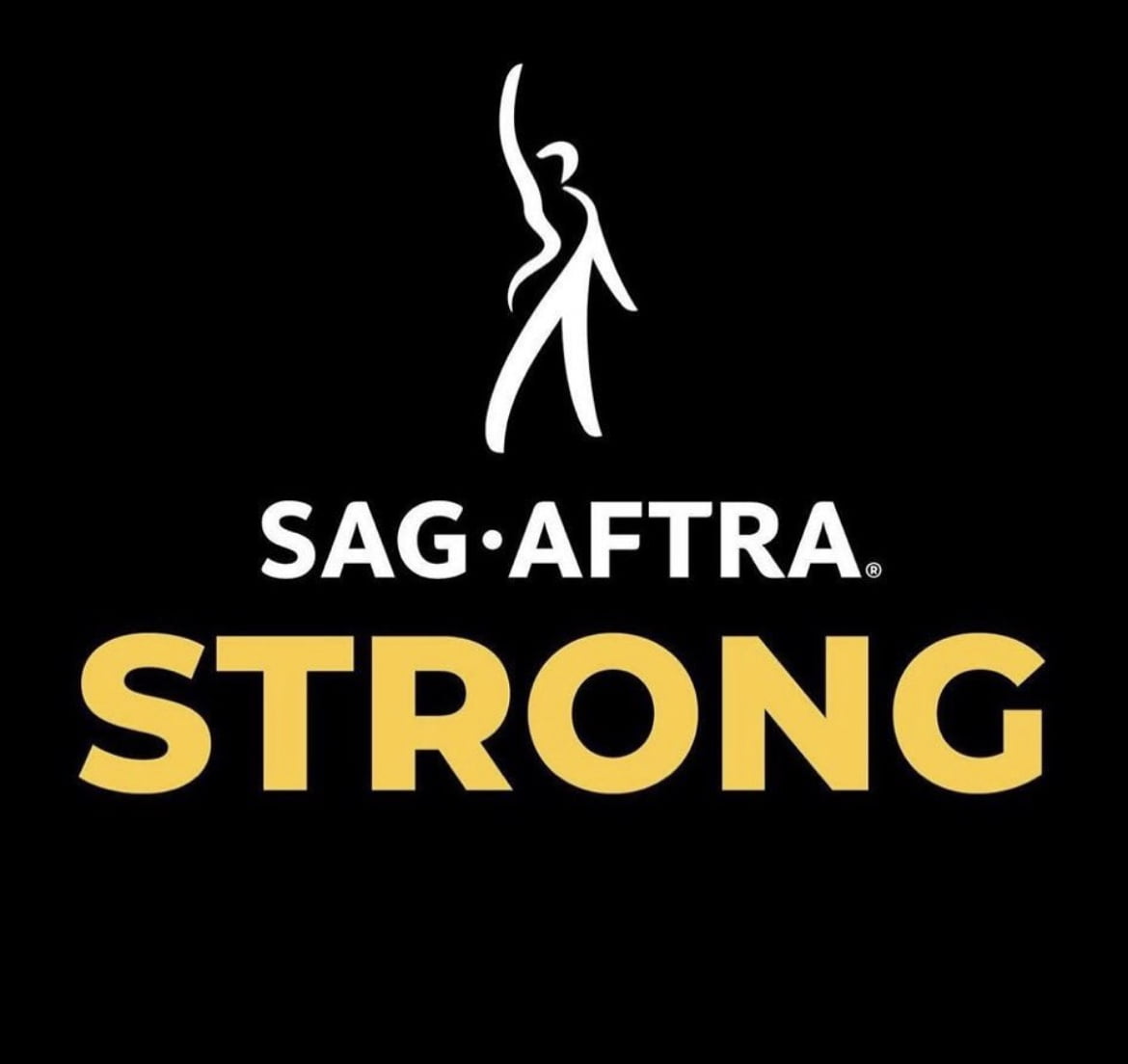
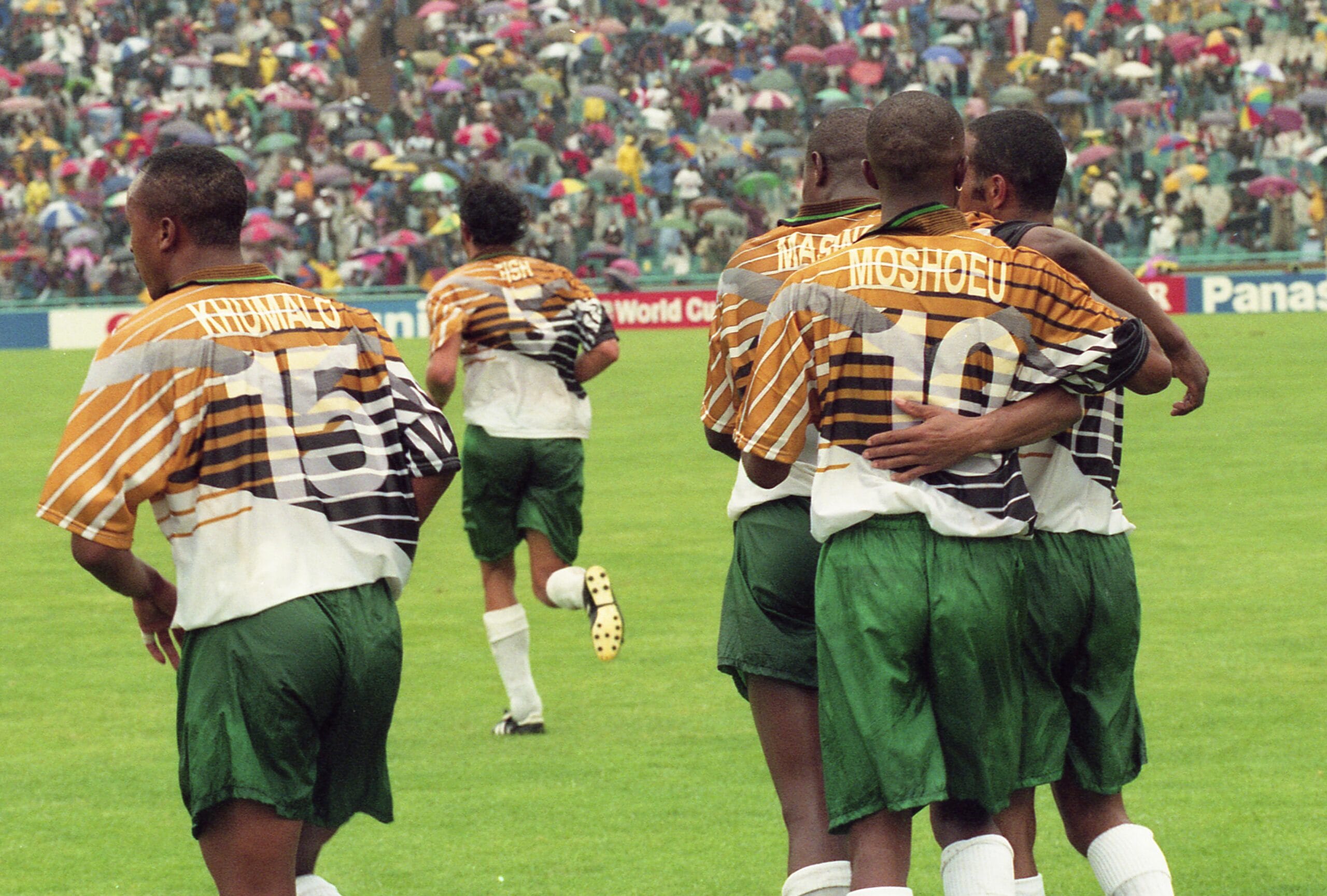

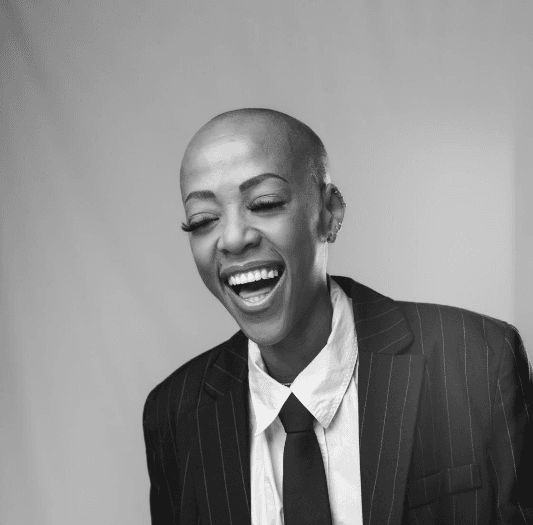
No Comments